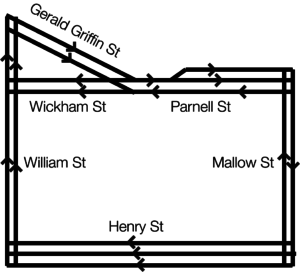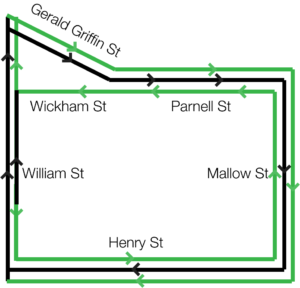I’d like to see the eighth amendment removed from the Irish constitution. I feel strongly enough that I’m going to be out knocking on doors and campaigning as much as I can on this referendum.
In some ways I’m completely unqualified to have an opinion on this, let alone go out campaigning on it. I’m a straight white man in his late thirties. I’ve been married for 11 years, but my wife and I can’t and won’t have children. I think you’d be hard pressed to find someone less qualified to write or speak about women’s reproductive rights than me. Yet it is precisely for that reason that I want to stand with women who are campaigning for this referendum.
I am an incredibly lucky person. I am a straight, white male. I was born in a relatively rich country. I received a good education, most of it free of charge. I am a beneficiary of most of the structural inequality in this country, because I am on the winning side of it. I live in a country where women are paid less, where people who grow up in disadvantaged families are themselves more likely to suffer disadvantage as adults, etc. etc. And (bear with me!) sometimes that’s difficult. It’s not my individual fault, right? I’m doing the best I can to be a decent person, occasionally succeeding, and while I didn’t create my genetic, historical and social good luck I can’t really do anything to reverse it either. But I can empathise, and imagine. Imagine what it is like to not have the rights and privileges that I enjoy by accident. And, in particular, imagine what it might be like to have the fricking constitution inserting itself between me and my doctor on what is the best for my health, life and well-being.
It is just awful that Irish women not only have had to put up with an incredibly draconian reproductive rights regime, but that, over the next two-and-a-bit months, they have to go out to the Irish people and ask and say please. Ask and say please for rights that they would enjoy in almost every other developed country.
I think it is time for Irish men like me, with our privilege and our luck and our sorry-but-what-can-you-do demeanour to stand up. Stand beside the women who are campaigning for control over their own bodies. Stand up and say please to the Irish voters who will ultimately decide on their rights.
If you’re lucky like me, then I hope you’ll join me. I’m involved in Repeal LK, the local campaign in Limerick to repeal the 8th amendment. There are similar campaigns starting up all around the country. I somewhat gingerly came to the first few meetings, not sure if I’d be welcome to join the fight, and worried that I might say the wrong thing. I met a group of funny smart courageous people, mostly women, who are operating with no funding, affiliated to a national campaign which is also short of people, time and money. I was welcomed, and educated, and encouraged. We have an introductory event in Limerick on Monday March 12th. Maybe you could canvass, fundraise, or even just donate. It’s going to be a tough campaign. All support will be gratefully appreciated.
I know there are many people, some of whom are my friends, who disagree with my views on abortion, and I want to do my best to respect those views. I’m sure what I’ve written here may sound tone-deaf, patronising or even insulting to women. I know I’ve a lot to learn.
With rights and privilege come a responsibility to fight for those without. Offering to help out in this referendum campaign may not atone for the rights and privilege that I have been gifted, but it feels like a start. If you’re lucky, like me, you’d be very welcome to come and put your shoulder to the wheel.



